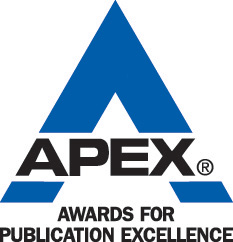 News from the Wire
News from the WireENGLEWOOD, Colo., August 16, 2022 – The U.S. Payments Forum, a subsect of the Secure Technology Alliance, today released its latest Market Snapshot. It provides an overview of the state of the industry including contactless payments’ role in the post-pandemic economy, digital wallet growth, alternative payment rails and mounting fraud concerns. The snapshot also explores advancements in faster payments, open payments for electric vehicle (EV) charging, PCI DSS compliance standards and current challenges facing the payments stakeholdership.
This industry update comes on the heels of the Forum’s summer virtual meeting. The event brought together more than 200 global payment leaders representing top payment networks, merchants, issuers, processors and acquirers.
State of the Market:
Contactless –
The payments landscape is experiencing an era of considerable change. Consumers are eagerly embracing advancements in payment technology post-pandemic, according to Forum members. The continued surge in contactless transactions is perhaps the most shining example. Discover Global Network is reporting a 62% year-over-year (YOY) increase in contactless transaction volume in the U.S. and U.S. Territories. Contactless sales volume in this region has increased a staggering 107% YOY. Mastercard is observing an over 100% YOY increase in both transaction counts and spend for contactless, with 82% of all card-present transactions happening at contactless enabled locations.
Touchless momentum is also increasing steadily for merchants, issuers and acquirers. Global Payments says it is approaching 80% completion for EMV contactless overall. A spokesperson for the company says some merchants are still using magstripe (MSD) contactless, however, this is primarily in the petroleum industry as they continue to transition to EMV following the April 2021 liability shift.
Tap to Pay, Tap to Phone and Digital Wallets –
Speed and convenience are top priorities for today’s consumers. So, it’s no surprise to Forum members that Tap to Pay, Tap to Phone, digital wallets and Click to Pay (Secure Remote Commerce) are gaining in popularity. For example, one multinational bank that would prefer to remain anonymous says spend has increased nearly 50 to 60% YOY for digital wallets in its portfolio. Regarding Tap to Pay, it accounts for over 24% of all face-to-face transactions in the U.S. and over 77% of transactions in the face-to-face environment take place at a Tap to Pay enabled merchant, according to statistics shared by Visa.
E-commerce surged amid the pandemic and although the payments industry is seeing a return to in-store spending, online purchasing remains consistent. Many consumers are taking advantage of Click to Pay to swiftly complete e-commerce transactions. Discover says Click to Pay transaction volume increased nearly 50% from Q1 to Q2 this year and new merchants enabling Click to Pay in Q2 increased 65% from Q1 of 2022
Travel and Credit Resurgence –
As the economy fully recovers from the pandemic, so do travel and spending habits. American Express is seeing a huge demand for leisure travel. For example, revenues from Delta’s co-branded credit card with American Express show $1.4 billion in Q2, 35% higher than in 2019. This is also reflected in American Express’ global travel trends report that states 86% of respondents expect to spend more or the same on travel in 2022 compared to a typical year before the pandemic.
Credit card usage is beginning to bounce back to pre-pandemic levels as well. The payments industry observed a shift to debit card use during the pandemic, especially following stimulus payments. According to Fiserv, people are reaching for their credit cards again, particularly in response to rising fuel prices. During the pandemic, fuel sales shifted to a 65/35 debit versus credit mix. This year, while debit is still the preferred payment method at the fuel pump, consumers are shifting back to credit, with a debit versus credit ratio of 55/45.
Trending Topics:
Focusing on Fraud -
Fraud trends were a recurring topic at the Forum’s summer virtual meeting. Card-not-present (CNP) fraud, account takeover (ATO) fraud and bot activity are major areas of concern for most payment stakeholders. Many Forum members observed a correlation between increased online transactions and a spike in these types of fraud. Accertify, a wholly-owned subsidiary of American Express, noted that a single ATO fraud incident can cost roughly $300 for an organization to resolve, quickly adding up if multiple incidents occur.
On the merchant side, a major home improvement retailer that asked to remain anonymous is reporting that fraud attempts nearly doubled in Q1 of this year when compared to 2021. Other merchants echoed this sentiment. The payment industry is responding to the widespread fraud uptick through advancements in tokenization, authentication (EMV 3-D Secure), data protection and cybersecurity measures.
QR codes and alternative payment rails -
Person-to-person payments and QR codes are gaining traction among the younger demographic of consumers. Payment networks are exploring new ways to incorporate these transactions into their business models. In one instance a global payment network shared international students studying in the U.S. tend to prefer QR code payments over contactless two to one.
Instant Payments with the FedNowSM Service -
The Federal Reserve Banks will soon launch an instant payment service, the FedNow Service. It is slated to become available in 2023 and has garnered a lot of interest in the payments ecosystem, especially among banks. According to the Fed, instant account-to-account payments will be possible through the service, as well as business-to-consumer payments, business-to-government payments, bill pay, wallet funding and defunding and more. The Fed says these transactions will happen within seconds. Funds will move from one financial institution to another with ease.
At launch, the FedNow Service will only be available to financial institutions that can hold accounts through the Federal Reserve. The Fed is, however, exploring sponsored models to expand the service to others in the ecosystem.
Forum Priorities:
The U.S. Payments Forum’s primary focus is to provide a platform for solving cross-industry challenges and promoting innovation. This is achieved through collaborative discussion, networking events and educational resources.
Electric Vehicle (EV) Open Payments -
The Forum recently turned its attention toward payments in the EV market by launching its Electric Vehicle (EV) Open Payments Working Committee. Both inside and outside the U.S., there is government support for a more expansive EV infrastructure. Despite billions of dollars in federal funding in the U.S. going toward EV charging, there is confusion regarding interoperability among various charging stations and whether certain payment methods are accepted.
During the summer virtual meeting, Forum members weighed potential solutions and areas of opportunity in the space. Many agreed that the payments industry would like to promote the adoption of tap or plug-and-go technology, allowing for quick and seamless payments across multiple electric vehicle and charging station manufacturers.
This method would follow the ISO 15118 “plug and charge” standard. According to Giesecke+Devrient, the standard and the underlying technology enable EVs from any manufacturer to initiate charging automatically with no need for membership cards or mobile apps. Drivers can authenticate and authorize through the EV charge cable itself for secure payments. Currently, some charge points require specific mobile apps or subscriptions to pay, while others accept credit or debit cards.
PCI DSS v4.0 -
A new version of the PCI DSS standard launched in March of this year and the Forum is taking steps to educate stakeholders on the changes. Increased flexibility is at the forefront of version 4.0, allowing organizations to use different methods to achieve security. According to the PCI Security Standards Council, The PCI DSS standard can be used to protect more than just PAN and payment card account data.
Some changes included in version 4.0 are:
New guidance on a variety of topics including scoping, segmentation, third party and service providers
PCI DSS has aimed to be technology neutral; however, the new version includes mention of security awareness training for evolving threats like phishing attacks and e-commerce skimming All access to card data environments must have multi-factor authentication in 2025 but the previous requirement remains the same until then
PCI DSS v3.2.1 will be retired at the end of March 2024. Until then, the Forum will continue to work to facilitate a greater understanding of the new version.
The Forum has numerous other projects currently underway that will benefit stakeholders throughout the payments ecosystem, including resources on:
EMV 3-D Secure Data Elements
Multi-factor Authentication and One-Time Passwords
QR Code Best Practices
Connected Car and Contextual Payments
PINless Debit
Secure Remote Commerce (SRC)
Retail and Financial Use Cases for Mobile Driver’s Licenses (mDL)
Resource Recap
The U.S. Payments Forum has recently published the following resources:
Fraud Mitigation Techniques webpage: a compilation of definitions, use cases and industry resources designed to help stakeholders navigate fraud mitigation
The U.S. Payments Forum Podcast: an episode exploring best practices for contactless (NFC) commerce at the POS and ATM
Consumer Experience at the Contactless Point of Sale: a white paper containing recommendations for facilitating frictionless consumer interactions during the transaction process Payments Resource Brief – Account Takeover: a concise overview of account takeover fraud, identifying factors, prevention and response techniques
Industry Considerations for 8-Digit BIN Migration: a white paper detailing what payments industry stakeholders should be doing to support both 6 and 8-digit BINs, as required by certain payment networks as of April 2022.
Organizations, associations, government agencies and individuals interested in participating in upcoming projects and initiatives can visit the Forum website to learn about how to become a member. For membership levels, benefits and the application, visit www.uspaymentsforum.org/membership/membership-benefits/.
About the U.S. Payments Forum
The U.S. Payments Forum is a cross-industry body that fosters open dialogue between industry stakeholders to enable efficient, timely and effective implementation of emerging and existing payment technologies through education, guidance and alternative paths to adoption. The Forum is the only non-profit organization whose membership includes the whole payments ecosystem, ensuring that all stakeholders have the opportunity to coordinate, cooperate on and have a voice in the future of the U.S. payments industry.
About the Secure Technology Alliance The Secure Technology Alliance is the digital security industry’s premier association. Through its U.S. Payments and Identity and Access Forums, industry councils and working groups, the Alliance fosters open dialogue among industry stakeholders to explore and develop secure technology innovations in the payments, identity and access markets. By collaborating on education and guidance, the Alliance helps enable efficient, timely and effective implementation of large-scale, disruptive technologies. For more information, please visit www.securetechalliance.org.
The Green Sheet Inc. is now a proud affiliate of Bankcard Life, a premier community that provides industry-leading training and resources for payment professionals. Click here for more information: bankcardlife.com?orid=33533&opid=1 .
Source: Company press release. 

Instant payments to surpass $58 trillion by 2028
Capify secures $125 M credit facility from Pollen St Capital
1st Source Bank top-ranked in US by Forbes
FastSpring, EBANX expand Pix Payments for Brazil market
Relay available for payments at 2,200+ CAT scale locations
Finastra reimagines mobile banking software
Quickcharge, Amazon Just Walk Out tech power hospital cafe
New LexisNexis True Cost of Fraud Study released


